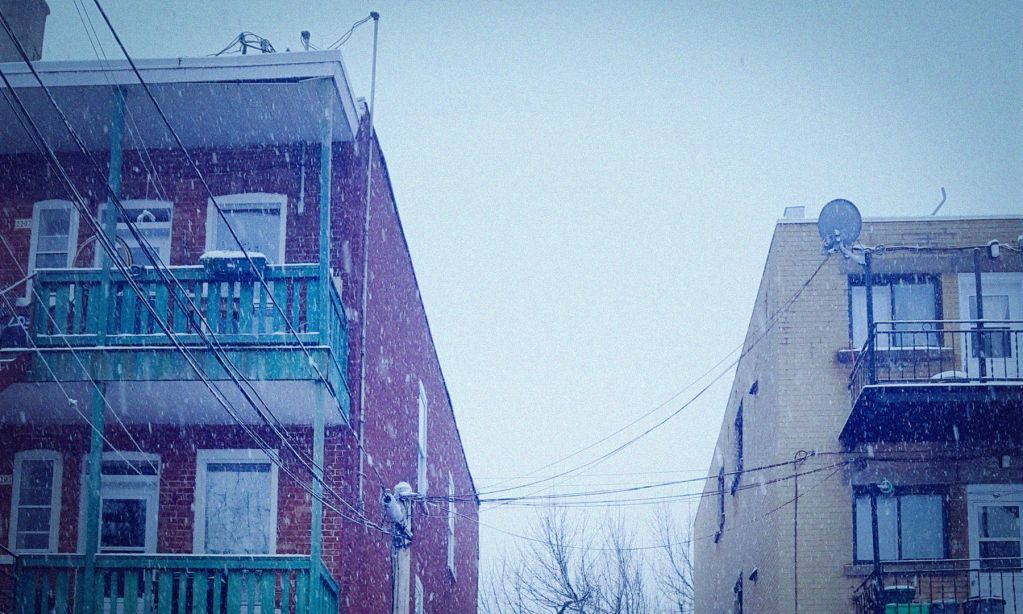Tenants’ organizations are strongly criticizing the new bill tabled by Quebec’s housing minister which would severely curtail important tenants’ rights in the province.
In the midst of skyrocketing housing costs across the province, tenant advocates say the proposed Bill 31 misses the mark when it comes to addressing root causes and even takes away what power tenants had to control fast-rising rents.
The end of lease transfers
Since being tabled on June 9, the proposed bill, which would modify various provisions of Quebec’s Civil Code and housing laws, has been making headlines—mostly in response to a modification that would give landlords the right to refuse lease transfers without serious reason.
Lease transfers are a common practice in Quebec which allows tenants to fully transfer responsibility for a lease to another tenant, which ensures that landlords do not engage in illegal rent increases between tenants. Under current legislation, landlords must have a “serious reason” to refuse a lease transfer, such as the new tenant being unable to pay the rent. Bill 31 would allow landlords to refuse them on a much wider range of justifications.
“The way the [proposed] law is written makes it seem like lease transfers will still be possible, but it would be entirely at the discretion of the landlord to refuse the transfer without any cause,” says Daniel Crespo Villareal, a housing lawyer.
This proposed modification has caused an outcry because lease transfers between tenants are an efficient tactic to prevent above-guideline rent increases in the absence of adequate rent control.
“Canada Mortgage and Housing Corporation estimates that rent in Quebec goes up by about three to four per cent per year for a returning tenant. Between tenants, they estimate it goes up by 10 to 12 per cent,” Crespo Villareal explains.
“There’s clearly a phenomenon of rent hikes when a new lease is signed, so lease transfers were a mechanism for tenants to secure housing at below-market cost.”
“In places in Montreal, it's even higher – the rent increase in turnover units was on average 14.5 per cent,” says Ricardo Tranjan, senior researcher for housing at the Canadian Centre for Policy Alternatives. “I imagine that landlords are really excited about this because the lease transfer prevented them from being able to push [rents] that much higher.”
Housing groups say that giving landlords full discretion to refuse lease transfers will effectively put an end to the practice.
“It’s like the straw that broke the camel’s back,” says Cédric Dussault, spokesperson for the provincial organisation representing housing groups, the RCLALQ.
“Lease transfers are definitely not the ideal remedy to the explosion of rents, but it was the one little thing that was available to tenants to try to keep some control on the cost of renting,” he says.
It comes at a time when more and more tenants are reaching out to housing groups to ask about the process of lease transfers.
“There’s been an increase in calls,” says Sylvie Lavigne, a community worker with the housing group Comité logement de Petite-Patrie, which helps tenants know and assert their rights. “Over the past two years, about a quarter of the calls we get are people seeking information about how to transfer their lease, what the process is like and what to do when the landlord refuses without a serious reason.”
She says that they’ve also noticed an increasing number of landlords refusing lease transfers without cause before the bill was even introduced—or asking for gratuitous fees, credit checks and tax information from lease transfer recipients. “Landlords shouldn’t be asking for those things for a lease transfer.”
For Crespo Villareal, the fact that “lease transfers being used in this way lately shows that the mechanism of rent control, which should effectively prevent these rent hikes between tenants, is not working. The system is deficient.”
The CORPIQ, an organisation which advocates on behalf of landlords, has been raising the issue of lease transfers primarily because the practice prevents owners from increasing their property value as much as possible, and less so to advocate for more freedom for the landlord to control lease transfers themselves, he says.
Representation at the housing tribunal
Bill 31 includes numerous other provisions, the outcomes of which are sometimes unclear in the absence of more context and clarifications. One such provision is the opening of representation at the Tribunal administratif du logement (TAL), Quebec’s tribunal for all matters pertaining to housing, by third parties other than lawyers.
“Currently, you have to meet a lot of criteria to be able to represent someone at the TAL. The new law removes some of these criteria,” Crespo Villareal explains. “It could be good for tenants, but it could also be good for property owners.”
Companies that own dozens or hundreds of units could simply delegate the responsibility of going to the TAL to property management firms, he theorizes. For tenants, it could mean representation at the TAL by community workers.
But Dussault warns that housing groups, already dealing with insufficient funding and resources for the responsibilities they currently take on, don’t need another role to fulfill in defending tenants’ rights. Allowing tenants to be represented by someone other than a lawyer risks diminishing the quality of their counsel, too.
“We’re concerned about the imbalance this would cause because in the vast majority of cases, the landlord is wealthier than the tenant, so they have much easier access to legal representation,” he explains.
Changes to eviction rules
As Quebec renters grapple with a wave of forced evictions, the frequency of which increased by 150 per cent last year according to the RCLALQ, the bill responds to the situation with two significant proposed modifications. The first is to change who has the responsibility to open a file at the TAL in the case of a contested eviction.
“The only gain in the bill is that if a tenant does not respond to an eviction notice, they will be considered to have refused it. The landlord would then have to open a file at the TAL,” says Dussault.
Currently, that responsibility falls on the tenant, and they have 30 days to do so.
“Often the most vulnerable of tenants and those who didn’t know their rights wouldn’t go to open a file within 30 days like they’re supposed to,” says Lavigne. “And sometimes, it was the cost of doing so that was prohibitive for tenants because opening a file costs $84. I have worked with tenants who didn’t even have the money to do that.”
The other change is to implement increased compensation in cases of eviction. The proposed law would allow tenants to seek damages for an eviction unless the landlord can prove the eviction was not in bad faith. Dussault is concerned about how this would play out in practice, given that tenants who seek to prove their eviction was in bad faith already face an unreasonably high bar in proceedings at the TAL.
“If the tenant leaves an affordable housing unit, they might 20 months’ rent in compensation, but down the line when those funds are gone that tenant will be stuck paying a lot more for an apartment because of the current rental market.”
“Instead of better legislating to prevent fraudulent evictions, we’re seemingly legitimizing all evictions by putting in a better compensation system,” Dussault says. “We can’t forget that currently, many tenants already walk away without any compensation at all.” He does not see how increasing the compensation would impact this.
What tenants need
“It's extremely irresponsible for the Minister [France-Élaine Duranceau] to be taking this and moving in this direction, when what we would hope for are measures that go into the exact opposite direction,” says Tranjan.
What is missing from this bill, say housing groups, is effective rent control methods, such as a rent registry.
“A public, free, compulsory rent registry can help because if everyone knows how much the unit was previously rented for, the existing rent control mechanism would be more effective,” says Crespo Villareal. “That is a longtime demand of housing groups and people who fight for tenants' rights.”
Housing Minister Durenceau—a former commercial real estate agent and house flipper who has been lobbied by the CORPIQ as well as former business associates from the sector—has not expressed interest in advancing those measures. Tenants organizations are planning a fight against the proposed law.
Bill 31 will be debated when Quebec’s National Assembly returns in the fall.







